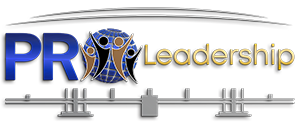Ethiopia Trip Report: Workshops for media institutions
Because of the unstable political atmosphere in Ethiopia, I have never gone back to Ethiopia since I came to the US in 2005. In April this year, however, the ruling party elected a new Prime Minister- Abiy Ahmed, who has been spearheading a reform that includes inviting political opponents, some of whom were sentenced to death in absentia.
Since then, thousands of Ethiopians in the Diaspora returned home after many years of exile. After 13 long years stay in the US, me too, I decided to visit my native country this past November.
During my four weeks stay, I had chances to:
- Visit my family,
- Give interviews to some government-owned and private media, and
- Conduct some keynotes and workshops for some universities and corporations.
Last week, I shared

In this brief report, I’m going to share with you the workshops I facilitated for diverse media leaders, producers, and editors in Ethiopia such as Amhara Media, LTV,

By the way, media has been considered as one of the major pillars in any society around the world. In the US, for instance, it’s called the Fourth State. We all know the power and influence of media. Like the government, businesses, educational and religious institutions of a nation, media plays a determinantal role for good or bad. It can promote peace, development, equality, unity, harmony or conflict, destruction, discrimination, and division. Either way, it is a consequential industry. We have seen in history how certain media promoted and agitated genocide. Therefore, we should not treat this industry lightly.

For your information, countries in Africa like Kenya, which only has 45 million people- less than half of Ethiopia’s population, has over 200 stations while we have a handful of major media outlets. We need more media in quantity and quality. We need to continue to support the very few media we have right now and make lots of efforts to have new media. We should make sure that these media outlets play their fair share in the nation-building process we are in right now. For them to play proactive and constructive roles, however, we all should contribute something financially, morally, professionally, and so on. As a media person and leadership expert, when I visited Ethiopia last month, I decided to play my fair share by empowering the leaders, producers, and editors of some of the media outlets.

By the way, among the few media that we have, I’d been admiring the positive contributions of some of the media outlets from afar. When I went to Ethiopia this past November, I was so glad that I had golden chances to engage with the leaders, producers, and editors of Amhara Media, LTV,

Using my media experience and my expertise as a leadership expert who has been empowering leaders in the US, I shared with them some insights, tools, models, and approaches that could help them create a media environment that allows them to continue to have impacts in the ongoing change process in our country. For your information, I used to produce English programs at ESAT, one of the non-governmental media institutions that played crucial roles toward the change we’re now

The theme of the workshops in Baherdar and Addis Ababa was ‘Three Key Soft Skills in the Media Industry‘. The workshops were based on my third book entitled ‘Soft Skills That Make or Break Your Success‘ and very dynamic and interactive. The main goals of these workshops were:
- To show the powerful place media has in any society,
- To recognize those critical soft skills and leadership competencies necessary to succeed in what they do as media professionals,
- To help them develop these skills, which in turn may empower them to advance the missions of their organizations, and
- To explain some of the vital roles they should play toward the ongoing transformation that is going on in Ethiopia.
Will continue to report the remaining aspects of my Ethiopia Trip. Stay tuned!

 D5 Creation
D5 Creation
Comments are Closed